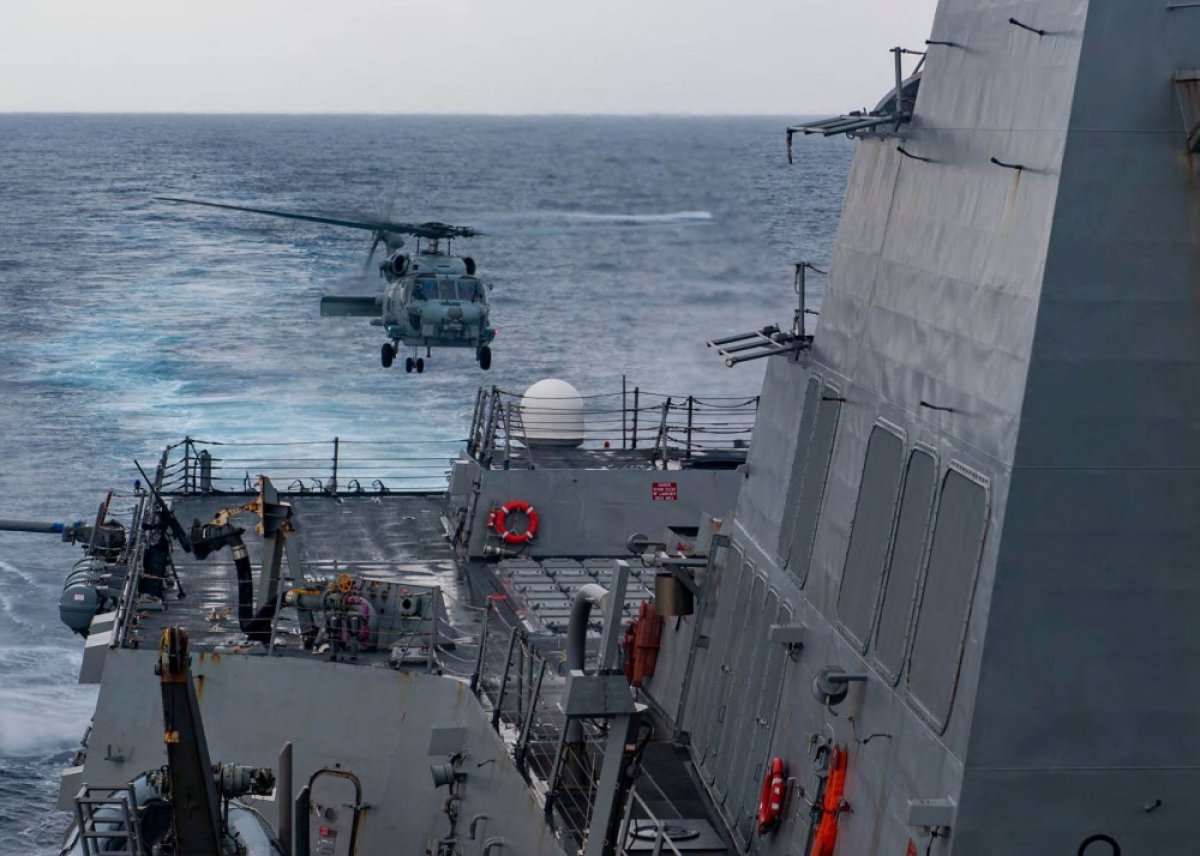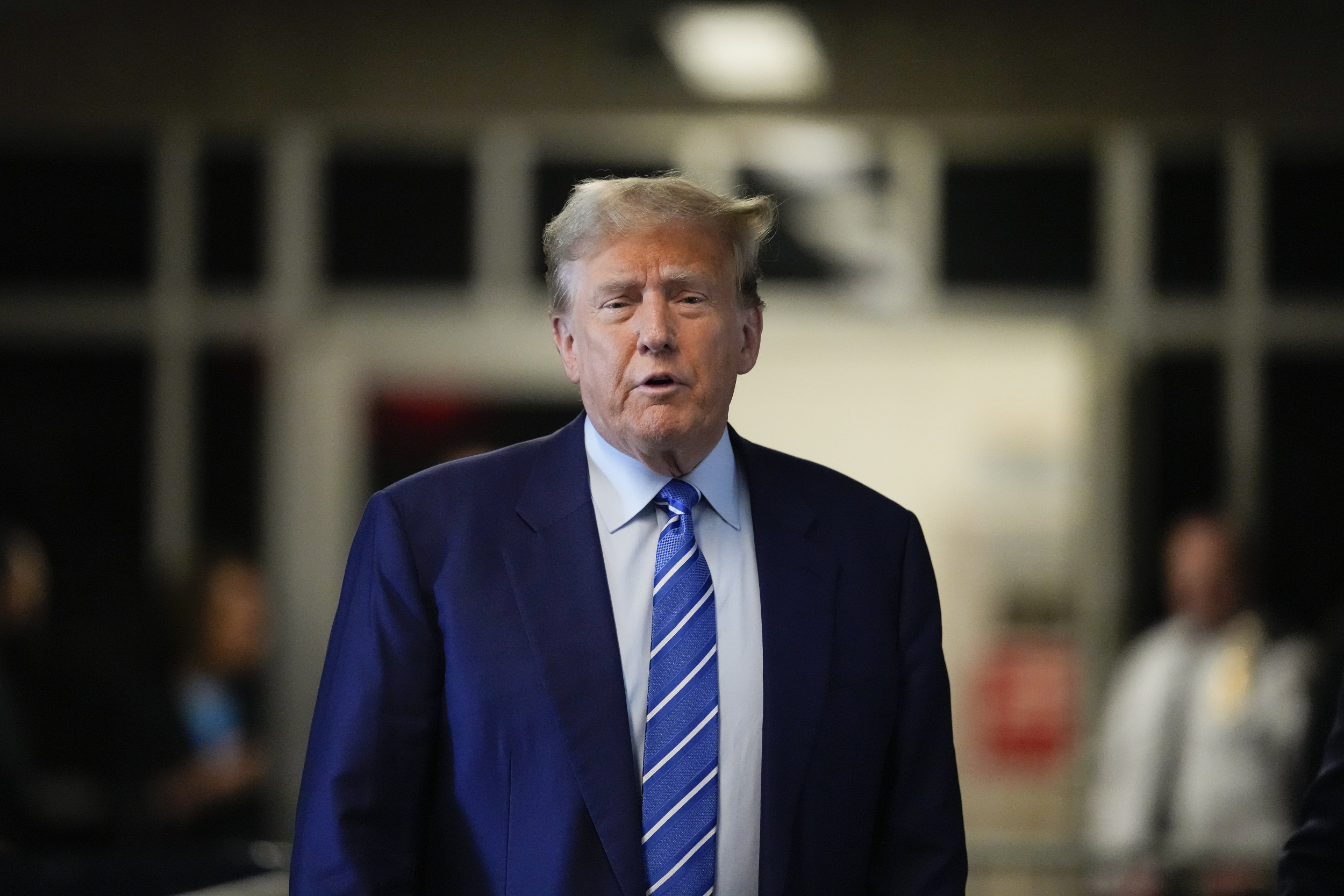The Chinese military has said it chased off a U.S. warship near a disputed set of islands in the South China Sea, but the Navy contended the vessel was acting within international law.
Senior Colonel Li Huamin, the spokesman for the Chinese People's Liberation Army's Southern Theater Command, said in a statement Thursday by official military outlets that the Arleigh Burke-class guided-missile destroyer USS Mustin "illegally intruded" into territorial waters near the Paracel Islands, known to China as the Xisha Islands, earlier that day. As a result, Li said Chinese sea and air units were dispatched to "warn off" and "expel" the vessel.
"The provocative actions by the United States have seriously undermined China's sovereignty and security interests, seriously violated international laws and regulations and severely damaged the peace and stability of the region," he said. "It is a brazen act of navigational hegemony."
Pacific Fleet spokesperson Navy Lieutenant Junior Grade Rachel Maul told Newsweek that the ship "asserted navigational rights and freedoms in the Paracel Islands, consistent with international law."
"This freedom of navigation operation ("FONOP") upheld the rights, freedoms, and lawful uses of the sea recognized in international law by challenging the restrictions on innocent passage imposed by China, Taiwan, and Vietnam and also by challenging China's claim to straight baselines enclosing the Paracel Islands," Maul said.
"Unlawful and sweeping maritime claims in the South China Sea pose a serious threat to the freedom of the seas, including the freedom of navigation and overflight and the right of innocent passage of all ships," she added.

The Pentagon has stepped up such freedom of navigation operations in line with the 1982 United Nations Convention on the Law of the Sea, which both Washington and Beijing have signed but only the latter has ratified. China views these actions as a challenge to its vast claims to the South China Sea, a flashpoint for its growing geopolitical dispute with the U.S.
Both the Chinese and U.S. military Thursday echoed comments they made a month ago as the Arleigh Burke-class guided-missile destroyer USS Barry and the Ticonderoga-class guided-missile cruiser USS Bunker Hill staged back-to-back freedom of navigation operations near the Spratly Islands and Paracel Islands, respectively. Those actions followed the Chinese Type 001 aircraft carrier Liaoning and accompanying warships transiting the Miyako Strait between Japan's Ryukyu Islands and the Bashi Channel east of Taiwan toward the South China Sea.
China has said it would reintegrate Taiwan under mainland rule by negotiation or force, prompting some U.S. calls for greater support for the island in maintaining its self-rule. Washington has charged Beijing with militarizing land formations across the South China Sea, where territorial claims and natural resource reserves have been the subject of further contention among regional countries.
"The People's Liberation Army has claimed more features in the South China Sea's international waters, sank a Vietnamese fishing boat, threatened a Malaysian energy prospector, and declared a unilateral fishing ban," Secretary of State Mike Pompeo said in a statement last week. "The United States condemns these unlawful acts."
The U.S. has sought to shore up ties with regional countries in pushing back against China's activities in the region. Over the weekend, Independence-variant littoral combat ship USS Gabrielle Giffords and Singapore's Formidable-class multi-role stealth frigate RSS Steadfast conducted joint exercises in the South China Sea.
The following day, two B-1B heavy bombers conducted an aerial mission in the South China Sea, "showcasing their ability to fly, sail, & operate anywhere international law allows, at the time and tempo of our choosing," as the Pacific Air Force said in a statement Tuesday.
The South China Sea is just one of the arenas in which the U.S. and China's political and economic rivalry has played out. Amid disagreements on trade, the handling of the novel coronavirus pandemic and the political status of Hong Kong, Chinese Premier Li Keqiang acknowledged during a press conference Thursday that Washington and Beijing's relationship today "faced new problems and challenges" but called for greater cooperation between the two nations.
Uncommon Knowledge
Newsweek is committed to challenging conventional wisdom and finding connections in the search for common ground.
Newsweek is committed to challenging conventional wisdom and finding connections in the search for common ground.
About the writer
Based in his hometown of Staten Island, New York City, Tom O'Connor is an award-winning Senior Writer of Foreign Policy ... Read more
To read how Newsweek uses AI as a newsroom tool, Click here.








